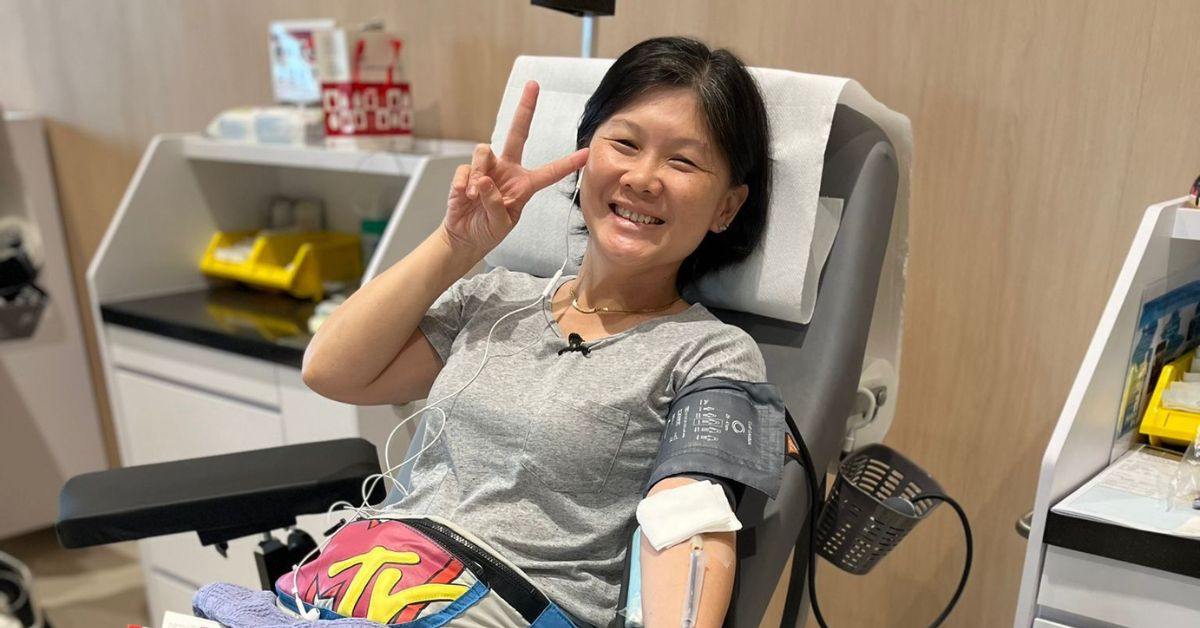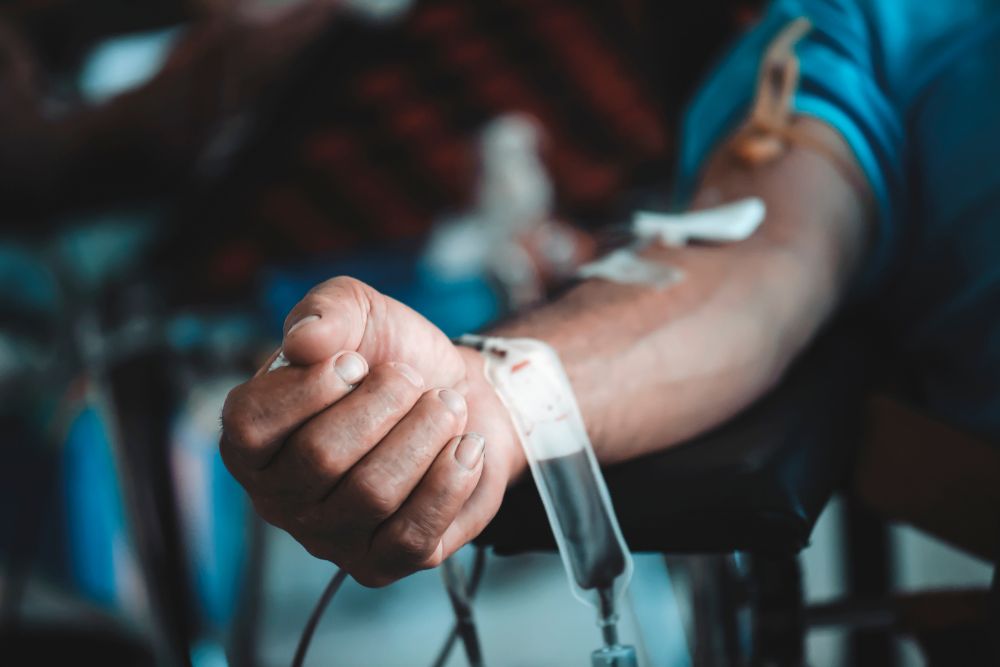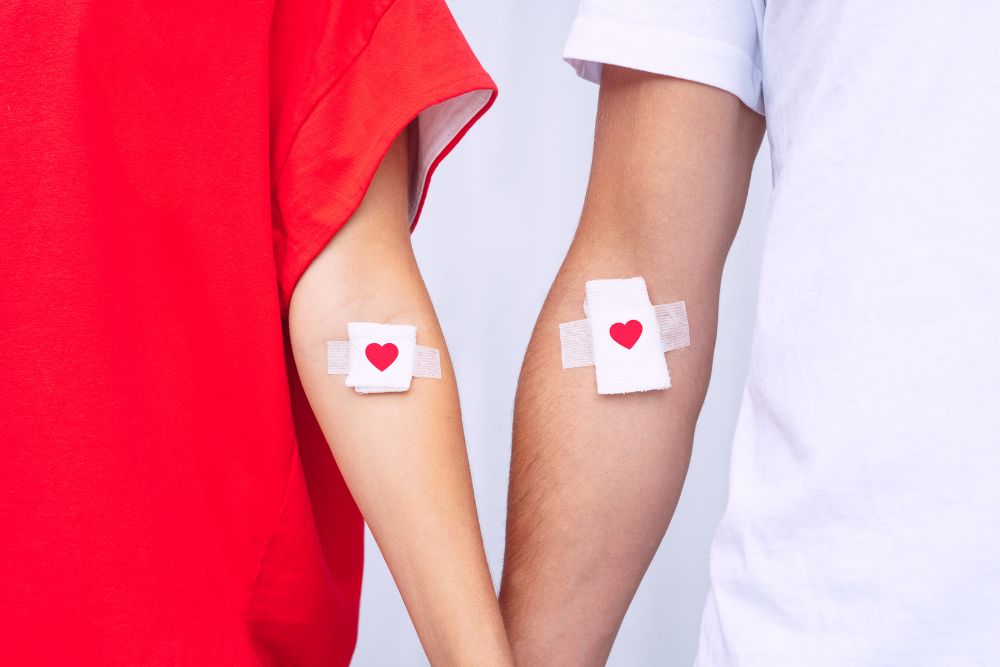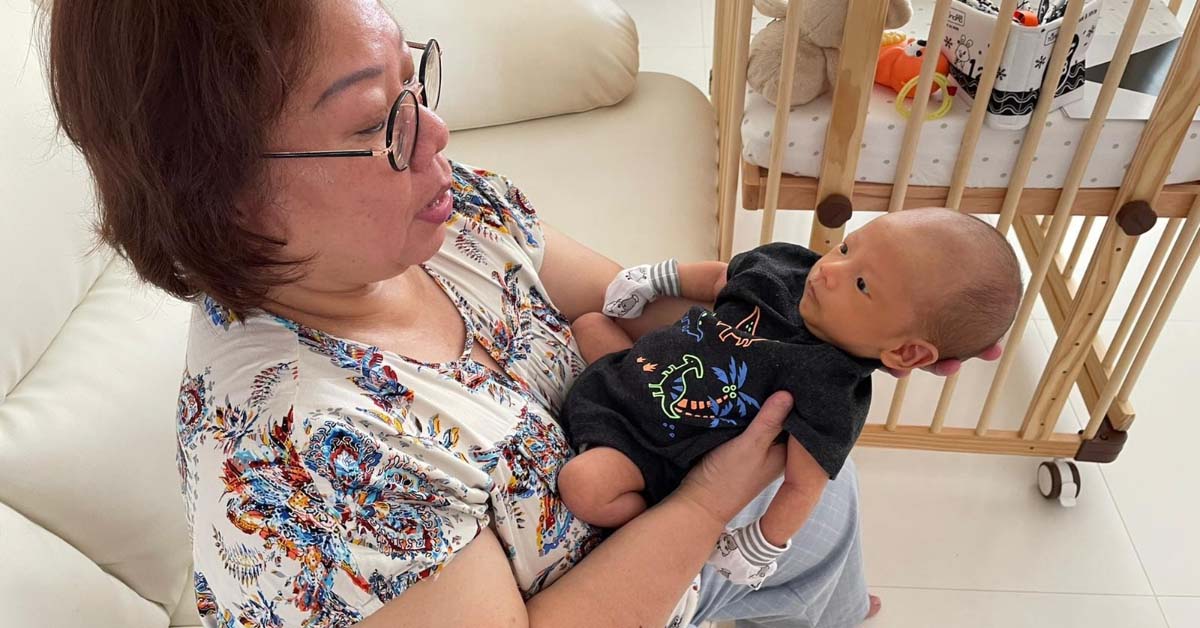
Tulsani Rajesh Lilaram went for his first blood donation when he turned 18, the legal age to start giving blood in Singapore without needing parental consent. And he’s gone again – and again – every quarter, like clockwork, till today.
The 54-year-old now counts 152 blood donations to his name, enough to earn him a Champion of Champions award from the Singapore Red Cross – though he’s nonchalant about the milestone.
“What have I achieved? It’s not a big deal,” says the fulltime community care associate at a senior day centre with a wave of his hand. “It’s a privilege, actually, since it means that I’m still healthy.”
In Singapore, you are able to donate blood if you are at least 45kg in weight, have a certified clean bill of health with no recent symptoms of infection, and a sufficient haemoglobin level (at least 12.5g/dL for females, and at least 13.0g/dL for males).
Advertisement
Anyone above the age of 16, all the way to age of 75, can give blood here. On World Blood Donor Day (14 June), we take a look at two red-blooded seniors who remain gung-ho about donating blood into their golden years.
Increased blood donations among seniors in Singapore

Seniors are a small but growing drop in Singapore’s blood donation bucket. According to mainstream media, there were 1,600 seniors above the age of 60 who donated blood in 2022, making up about 2% of the blood donors that year.
Only people who are regular blood donors before the age of 60 can continue giving blood until hitting the upper limit of 75.
According to Health Sciences Authority (HSA), this limit is set to protect the safety and well-being of people who are new to blood donations.
Senior donors may have a lower physiological tolerance to blood donations and a higher incidence of cardiovascular risk factors. Senior donors who are donating for the first time may thus have a higher risk of fainting and other adverse reactions. Therefore, the upper age limit for first-time donors is a precautionary measure to ensure the safety of our senior blood donors,
says the HSA.
Overcoming fear to perform blood donations

That’s why some longtime blood donors like Tulsani started young. He first gave blood back in 1989, together with his siblings at a community blood donation drive held at a Hindu temple.
There wasn’t any fear, since my siblings had been doing it all along. They told me the needle would feel like an ant bite, and it did – so it was easy after that,
he says.
For others, it isn’t so much as a lack of fear as it is overcoming it. Fellow silver blood donor Koh Choon Luan crossed 100 notches on her belt last year, receiving a Diamond award from the Singapore Red Cross for her contributions – despite developing, over the years, a “sensitivity toward blood”.
Frankly, I always disliked the feeling of the needle piercing my vein,
says the 52-year-old.
"I continue because I know my blood can save lives, and it’s something that you can’t replace."
Hope to keep donating as long as possible
Both seniors interviewed agree that they want to keep donating blood for as long as they can – and would like to encourage other seniors who are suitable to contribute where they can.
Choon Luan was young and game to try new things. “Since nobody I knew was donating blood, I just felt great that I could help people within my limit when I didn’t have a lot of cash.
I came to realise that not all people are suitable for blood donations. I count my blessings today that I can still contribute to society,
she adds.
If you’re healthy and your doctor gives you the go-ahead, why not? It’s a way to give back. We should all help one another when we can.
Tulsani concurs, saying,
Who knows? Maybe when I’m older, I may be the one who needs the blood. Then I’d have to rely on other people’s blood donations – I help a bit, then you help a bit, lah.
He adds,
Blood Donations In Singapore – A look at the whole process
While the act of giving blood takes less than 15 minutes, you’ll probably want to set aside at least an hour for the entire blood donation process, just in case you want to take some extra time to rest.
You don’t have to do anything special before donating blood – just make sure you’ve got food in your stomach, plenty of fluids and sufficient rest before heading down to your nearest blood donation clinic.
Be sure to bring an official photo identity document like your IC, driver’s license, passport or donor’s card. You can also use SingPass on your mobile phone. If you’re taking any medication, do bring along a list of that as well.
Once you’ve arrived at the blood donation clinic, here’s what you can expect:
- Pre-donation checks:You’ll first be instructed to fill out a health assessment questionnaire detailing your medical and social history. Thereafter, you’ll perform a finger-prick test to determine if you have a sufficient haemoglobin level. The minimum level required is 12.5g/dL for women, and 13.0g/dL for men.
- Medical screening: Next, you’ll go through a more thorough medical screening, where an attendant will confirm your answers in the questionnaire before measuring your weight, pulse, blood pressure and temperature to ensure that it is safe for you to donate blood.
- Blood donation: Find a chair, sit back, and relax. A nurse will apply a local painkiller on your arm before beginning the blood donation process. It’s a quick process, taking all of five to 10 minutes.
- R&R: After your donation, you’ll be provided with some light refreshments and a space to relax. Make sure you feel well before leaving the clinic!
After donating blood, avoid any strenuous activities like exercise – especially if they involve the arm where blood was drawn from – or activities that require your full concentration like driving as you might feel faint intermittently. The Singapore Red Cross advises a 24-hour waiting period for your body adjust to the blood donation.
You should consume more iron-rich foods like offal, dark green leafy vegetables (spinach, kale and chard) and legumes, as these will help you replenish your haemoglobin levels.
It takes around four to six weeks to completely replace your blood cells. In Singapore, blood donations can only be scheduled again after 12 weeks.






